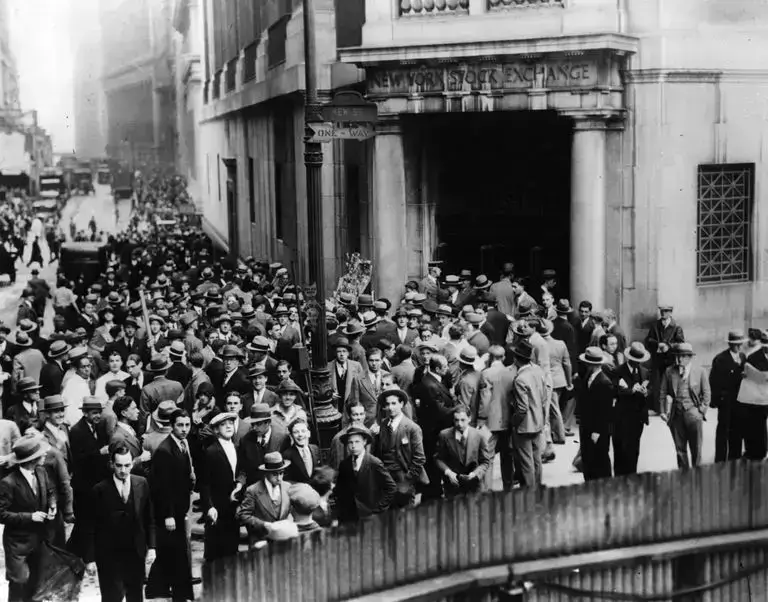Why is Brexit Important?
Brexit is significant for a number of reasons. One of the most important is its impact on the economy. Trading relationships are sure to be affected as trading barriers will be introduced. But the UK may not be the only economy that is hit, the EU could also face harsh challenges due to the fact that London plays a significant role as the banker to the eurozone. The pound may not be drastically impacted as the UK has its own central bank which means that the governing board can change the policy according to the consequences of Brexit. Therefore traders need to be aware of any changes to the interest rates that will be announced by the Monetary Policy Committee. Initially, the pound could fall if the UK left with a no deal but with the right policies made in response to this, it may not be as much of a drastic impact on the economy.
What is Brexit?
Brexit is a term used by people to talk about the UK’s decision to leave the European Union (EU). Brexit was coined from the words “British Exit”. The EU is a union that consists of 28 countries, they are able to trade with each other as well as enabling citizens to visit the 28 countries without a visa. On Thursday 23 June 2016, UK voters were asked to make a decision on whether the UK should leave or remain, in the EU. The results showed that the ‘leave’ side had won, with a majority of 52% to 48%. This is commonly known as the EU referendum.
What Started Brexit?
Brexit was always on the cards especially when David Cameron, the former Prime Minister was the first to veto the EU treaty in 2011. Cameron was also in support of an in/out referendum which he promised to hold, this was published in his manifesto. He made a pledge to negotiate the terms of UK’s membership with the EU if his party won with majority votes at the next general election. Cameron wasn’t the only political figure who was frustrated with the UK and EU membership. At the time the UK Independence Party (UKIP) was rapidly gaining support mostly for their ideologies against the EU, the party was headed up by Nigel Farage
In May 2015, David Cameron won the reelection, he started to focus on EU and UK relations and wanted to re-negotiate certain issues that included, migrant welfare payments, financial safeguards, and EU regulations. He publicly announced these negotiations and a date for a public referendum was set just like he promised in his manifesto.
Why did Brexit happen?
A vast amount of voters took a pro-Brexit stance. Brexit was a result of ongoing public support and frustration towards the existing relationship with the EU, at the time. According to a poll taken by ’Lord Ashcroft Polls’, 49% of voters had said that the key reason for them voting to leave was that decisions which affected the UK should be made by the UK, rather than the European Parliament. Another 33% of leave voters wanted immigration policies to be more controlled and this was another key reason behind the EU referendum results.
The latest news on Brexit: What is currently happening?
Both the EU and the UK have agreed upon a variable extension to Article 50, which is the legal document declaring the UK’s departure from the European Union. So when does Britain leave the EU? Brexit is now delayed until the 22nd of May 2019. However, this will only be the case if MP’s accept the deal Theresa May proposes. If they do not back the deal then the UK will only have until April 12, 2019. Currently, the MP’s are going through ‘indicative votes’, this means that there are various debates on alternative Brexit options happening in parliament. Theresa May has also promised her party she would be stepping down if her deal is passed. If Theresa accepts the MPs chosen option the government will then try to implement it. If not then there will be a chance for another meaningful vote on Theresa May’s deal. If the deal is passed, there will be legislation created to implement the deal and then the UK will depart with a deal in hand on the 22 May 2019. However if the deal is rejected then there are three options available. The UK could leave without any deal on the 12th of April, the UK could cancel Brexit, or there may need to be a request for a further extension. If a further extension is granted then the UK will have to take part in the EU election. After this, the UK will either have to renegotiate, have another public referendum, or a general election.
How will Brexit affect the Markets?
On April 9, the UK was in the EU and was still using the trade links and is subject to EU law and regulations, this will be the case until an exit deal has been confirmed or the negotiations set in Article 50 expire. The British economy was impacted as a result of the EU referendum. UK’s GDP growth slowed down to 1.5% in 2018. This is compared to 1.8% in 2017 and 1.6% in 2016. The result also impacted the employment rate as it hit a 44-year low at 3.9%. The CPI inflation rate hit 3.1% from 2016-17. This exceeded the Bank of England’s 2% target.
Forex
The event of a no deal is likely to make GBP an unreliable currency due to constant fluctuation. The UK will have to adhere to the rules and regulations of the World Trading Organisation (WTO) again causing uncertainty in the market.
FTSE 100
Brexit has taken its toll on FTSE 100. In 2018. Its value had shed to around 8%, compared to the S&P 500 which increased by 12%. A GDP that is weak is more likely to benefit from the international companies which make up the FTSE 100. When the referendum result had been announced the markets which were hit the hardest included financials, retail and leisure firms. They fell by 12% on average.
ATFX’s Brexit Timeline
The Brexit Vote: What exactly happened?
The outcome of the vote had a disastrous effect on global markets, the British pound plummeted to its lowest level in thirty years against the US dollar. Following the result, there was also trouble within the government. Former Prime Minister and an advocate for Brexit David Cameron resigned the day after the results came in. At the time Theresa May was home secretary, she replaced David Cameron as Prime Minister. The UK did not leave straight away as there needed to be a period of negotiation. This allowed the UK and the EU to negotiate the details of the withdrawal as well as discussing the future relationship between the two. The transition process is regulated by Article 50 of the Treaty on European Union. May started the withdrawal process with a notification to the European Council. In order for a deal to be achieved both the UK and the EU need to agree. If both sides don’t agree on a deal within the two years of the referendum result, then the UK’s membership will cease, unless both parties agree to extend negotiations.
When will Brexit happen?
The UK was officially set to leave the EU on the 29th of March 2019. This was the proposed date after Article 50 of the Lisbon treaty was triggered on the 29th of March 2017. Yet after the latest Brexit news, this date has now been extended. On the 20th of March 2019, Theresa May had to ask the European Council for an extension to be granted until the 30th of June 2019.What is Article 50?
Article 50 of the Lisbon treaty was triggered on the 29th March 2017 which meant that the UK was set to officially leave the EU on the 29 March 2019 at 11 pm. The treaty is the legal process for the UK leaving the EU, as it sets out the exit procedure. It is also the two-year countdown to when Brexit will occur. Negotiations lasted until June 2017 and during the negotiation period, the Prime Minister tried to bolster the Conservative parliamentary majority with a snap election. Yet the election led to an unexpected coalition government, with the Tory’s and the Democratic Unionist Party (DUP), this means that the final Brexit deal will also need approval from the DUP.
Brexit Agreement: What negotiations took place?
On June 19, 2017, Brexit negotiations began and a timeline was suggested by Michel Barnier, the EU’s chief negotiator. In December 2017 agreements were made which included a financial settlement between the amount of £35-39bn, a soft Irish border and cross-border rights for EU and UK citizens. Furthermore, in November 2018 was the period when the focus turned to the future relationship between the EU and the UK. A transition period was also agreed upon this period was provisionally meant to last 21 months, and was meant to come into effect after the leave date. This was to allow the UK and the EU to determine their future trading relationships, as well as to allow businesses to prepare for the exit.
What is the Chequers deal?
The Chequers Plan set out the relationship that the UK would seek with the EU following its departure. The plan was published on 12 July 2018, however it was rejected by the EU. Even though the plan was accepted by the British cabinet, the EU chief Michel Barnier accused the UK of ‘cherry picking’ the parts of the EU single market that it liked. There are ‘four freedoms’ which form the basis of the EU single market, this includes the free movement of goods, people, services and capital. The Chequers agreement only mentioned the free movement of goods. A major dispute during negotiations was based on the border between Northern Ireland and Ireland. The EU simply could not accept a soft border with a country that essentially had different custom arrangements to the UK. The two sides then agreed to a deal which could see the UK as a whole remain in something called a joint ‘customs territory’. This agreement was signed in November 2018 until an alternative trade deal could be reached, yet a number of sceptics felt that claiming this agreement would lead to the transfer of UK’s trade to a foreign power.
The next stage: The Draft Deal
The draft deal followed the failed Chequers agreement. This new draft was put forward to the cabinet ministers, and it highlighted a soft Brexit. There was a plan made in the new draft deal for trade during the transition period. The Irish border and the rights of the UK and EU citizens were also mentioned in this draft. Moreover, following the draft deal, several cabinet ministers handed in their resignation. The most notable figure who resigned was the Brexit secretary Dominic Raab. A summit meeting was held on the 25th November 2018, the EU leaders agreed to Theresa May’s Brexit deal. The deal still needed to be passed by the House of Commons, on 10 December 2018, a day before the proposed vote Theresa May made a decision to postpone it. The reason for this being that there was still opposition facing the deal from members of parliament. The second vote was then scheduled for 15th January 2019.
The Brexit draft deal vote
The 15th of January was highly anticipated, May’s draft deal was defeated in the House of Commons by a staggering 432 votes to 202. A majority of MP’s were not happy about the deal being proposed and refused to support it. This outcome led Labour leader Jeremy Corbyn to trigger a vote of no confidence. This happened on the 16th of January 2019. Even though it was a close call, Theresa May won the vote of no confidence in her government, with a result of 325 to 306. After Theresa May’s Brexit deal was defeated on the 15th of January she had to come up with a new deal this had to be done within three parliamentary working days.
The Second Defeat
The revised deal was rejected for the second time on the 12th of March 2019. May’s deal was rejected by 149 votes, with a majority of 391 MPs who voted against it and 242 MPs who supported the deal. The following day MP’s were given a chance to either support a no-deal Brexit which meant that the UK would have left on the 29th March without any agreement with the EU. This was rejected which meant MP’s had to vote again on the 14th of March, on whether they wanted to ask for an extension to Article 50. If MP’s rejected this then the UK would have departed with a no-deal Brexit. However, MP’s supported an extension which led Theresa May to request the extension from the EU.


